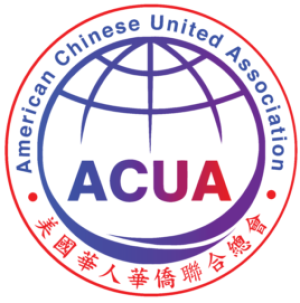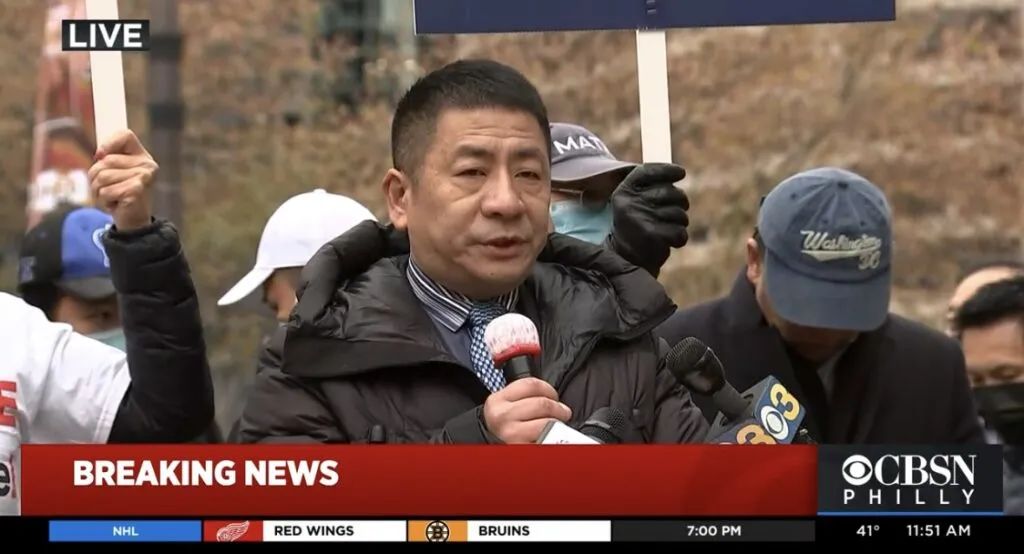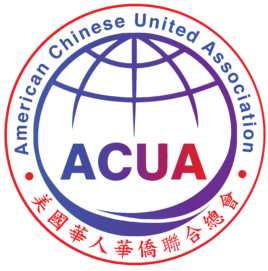Recently, the conference work of the ACUA in the United States has been carried out smoothly. In particular, the Florida chapter set up its inaugural ceremony last month, which was strongly supported by the Chinese in Florida, and the Massachusetts chapter will also hold its inaugural celebration in Boston on June 1.
On the occasion of good development, reporter Felicia interviewed Chairman Jason Lam. In the interview, Jason Lam briefly reviewed the past development of the ACUA (American Chinese United Association) and looked forward to the future development.
Interview with Jason Lam Q&A
Q: In the past three years of the pandemic, has there been change in aim of the ACUA?
A: At the beginning of our establishment, ACUA was committed to becoming a platform for cooperation and exchange among Chinese associations across the United States. It is politically neutral and pays attention to social and current affairs, and is committed to building and developing a multi-ethnic and harmonious community. However, the sudden COVID-19 epidemic, social riots, anti-anya crimes, etc. sublimated the conference concept of ACUA.
Because in the past two years, the marginalization of the Chinese has become more prominent and the survival crisis has intensified. The joint cooperation of the Chinese community is particularly important at this time; it is more important for Chinese to participate in and discuss politics, especially to cultivate and support the second generation of Chinese with excellent English, so that Chinese can become a part of the mainstream society.
Therefore, the purpose of “building consensus, working together, integrating into the mainstream, and safeguarding rights and interests” of the American Chinese United Association is even more important.
Q: What did ACUA do during the COVID-19 pandemic, social riots, and anti-asian crimes?
A: At the beginning of 2020, the COVID-19 pandemic hit the United States, when all governments and businesses were shut down and medical supplies were extremely scarce. The ACUA noticed that there was an extreme shortage of social medical supplies and was difficult to find, so we immediately appealed to Chinese communities across the United States to donate and collect medical materials, and donate to social medical and safety and security departments.
The ACUA immediately set up a temporary “anti-epidemic endowment fund” for overseas Chinese in Pennsylvania, summarizing the charity donations of the local Chinese people and communities of more than hundreds of thousands of dollars, and donated medical supplies purchased to local hospitals, nursing homes, police stations, churches, parliamentarians’ offices, etc. We have visited almost all Philadelphia constituencies.
Subsequently, the ACUA and the Philadelphia Chinese Chamber of Commerce assisted the government in making free food distribution stations, vaccine stations, etc. Even during the riots, various interactions with the government continued, and invited local parliamentarians and police to participate in the activities, which played a positive role in the integration, harmony, and stability of all ethnic groups.
When the COVID-19 pandemic hit the United States, Anti-Asian crimes in various places surged. The ACUA, together with some local overseas Chinese leaders, was not afraid of the risk of the epidemic. During the most horrible period of the pandemic, it took on the role of a donation representative of Chinese in Philadelphia and traveled to many communities, effectively reducing the risk of violent hate crimes.
After Chen Zhibo, a Chinese teenager in Pennsylvania, was shot dead by the police, we held an emergency online meeting and went to the local area to express our condolences to their families and organize a march in Philadelphia City Hall.
During the Atlanta massacre, we formed an emergency meeting group to unite Asians from all over the world, negotiate solutions, organize marches, and drafted a joint protest letter and submitted it to the White House for the protection of the personal safety of Asians.
Last year, Christina, a Philadelphia girl, was bullied and beaten when she took the Philadelphia bus SEPTA, which attracted the attention of the United States. The Association participated in large-scale parades in Pennsylvania, New York and other places, and joined hands with state legislators to present awards to the girl for her heroism.
In a word, ACUA has always been paying attention to the latest social trends, and we will always make our first response when any emergency comes.
Q: How did you come up with the online meeting ideas of the “Chinese American community Roundtable meeting” and “Chinese American Cooperation Forum”? What was the purpose?
A: Previously, meetings of Chinese communities were often held in the form of banquets and festivals. In addition, state meetings were held in the form of physical meetings in various cities. After the COVID-19 pandemic, people shifted to working at home, and the graduation ceremony of 10,000 people in the school was also held online.
The ACUA immediately came up with the idea that community leaders, Chinese elites and representatives from all walks of life in the United States can hold meetings online. As a result, Chinese people everywhere will get to know and cooperate. The conference will have the online advantage of “larger personnel and unlimited conference space”. After the success of the first “Chinese American community Roundtable meeting”, we developed the “Chinese American Cooperation Forum”, a conference platform for Chinese in all states.
Together, we have held nearly 20 Chinese online meetings one after another, and the format of online meetings has become a brand. Now more and more media and associations have taken the initiative to cooperate in hosting the meetings.
In addition, the ACUA is also organizing Chinese elites to compile the “National Chinese Development Outline” and will publish books.
It is worth noting that the ACUA is planning the “American Chinese Cooperation Summit” and the opening ceremony of the museum and the unveiling of the bronze statue of great men from China and the United States, which will be held in Philadelphia from October 22 to 23. At that time, government officials, leaders of Chinese communities in the United States, business elites and representatives from all walks of life will be invited to discuss the development of the Chinese cause.
Q: What is the purpose of establishing the American Chinese Museum in the United States? How is the construction of the museum? When will it be officially opened to the public? Is it affected by the pandemic?
A: The purpose of establishing the American Chinese Museum in the United States has also deepened over time, and with the occurrence of various events, we have a deeper understanding of the significance of the museum.
So far, the main records and development directions of the American Chinese in the United States include:
- Record the history of Chinese immigration.
- Record the development of the U.S.-China activities.
- Record and discover Chinese people who have made important contributions.
- Become a cultural platform for Chinese to work together.
- Become a place of celebration for major festivals and anniversaries in the United States and China.
In addition, we have also set up the Chinese Food Museum, the National Chinese Genealogy Collection Data Center, and etc.
The COVID-19 pandemic has affected the construction time of the museum in the past two years. In 2021, the museum completed the collection of two exhibits and carried out many indoor and outdoor decoration exhibitions. Here, the museum appreciated overseas Chinese for their charitable donations to ensure the follow-up operation of the museum.
Up to now, the museum has held New Year’s Day, Spring Festival, Asian Month and other celebrations. Many congressmen, state legislators, city councilors and other government officials have visited the museum many times, and the actual operation capacity of the museum is getting better. Asian Business Week will also be celebrated on June 4, and the museum hopes to plan new activities every month.
Q: Why did the American Chinese United Association set up state chapters? What are the main working points of state chapters? What is its relationship with the general Association?
A: The inauguration of the Florida chapter was held vigorously, which was a milestone in the development of the ACUA. I am very grateful to the leaders of Florida for their support and dedication to the conference concept of the ACUA. The inauguration of the Massachusetts chapter on June 1st has been highly anticipated.
First of all, I would like to emphasize that the ACUA is a platform for Chinese cooperation in the United States. It mainly plays the role of guidance, cooperation, coordination and service. It is a joint cooperative relationship with state chapters. The ACUA and the state chapters are combined because they agree with the concept of “building consensus, working together, integrating into the mainstream, and safeguarding rights and interests”.
The reason why the Meihua Federation will continue to develop and establish state chapters is that we believe mutual assistance, resource sharing and cooperation are very important for Chinese to improve their social status. The ACUA will announce good ideas, events and experiences to various states to carry out, publicize and promote them. We believe that the chapters established by each state will definitely play an active and effective role.
Raising awareness of ethnic survival crisis, establishing a community platform for ethnic interests, encouraging Chinese to participate in politics, and cultivating the sense of social responsibility and mission of Chinese teenagers are the focus of the future work of each state. Safeguarding the interests of local Chinese and encouraging local Chinese to participate in politics and deliberation are more down-to-earth and have more advantages.
At the same time, when dealing with major emergencies, the General Association can cooperate with local chapters to deal with the incidents, and hold huge cross-state activities at the same time. In addition, when a branch encounters difficulties, the association will make every effort to cooperate with other chapters to help, which can better reflect the significance of collaborations.


